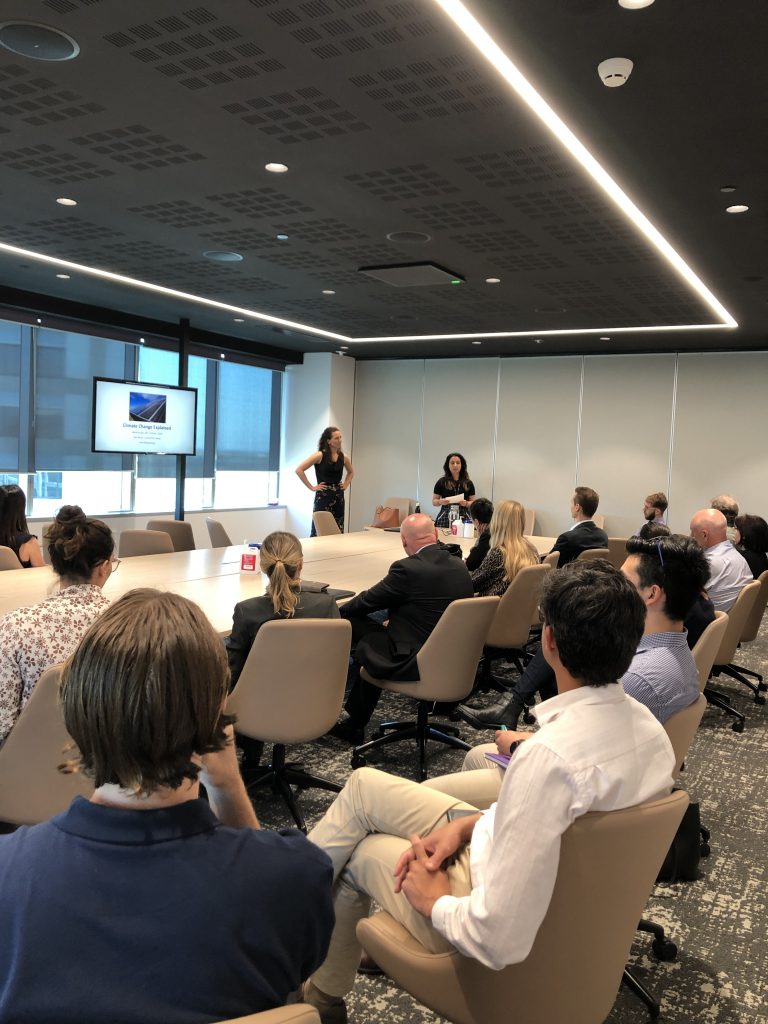Get Wiser Oct 2020: Climate Change with Lana Dzananovic

In the October Get Wiser presentation, Lana Dzananovic broke down the science of climate change for attendees. Discussing everything from how the climate changed before humans existed, why it’s so different now, and why we must act urgently. Lana has worked at Worley for eight years as a mechanical engineer, project engineer, and is currently the Energy Manager in Worley’s sustainability team. Her passion for sustainability lead to an engaging discussion focused on the science and ramifications of climate change.
Lana began the presentation by first explaining that before humans existed, the environment had already seen several changes due to natural phenomenon. This being the Milankovitch cycles. What are they you might ask? Well as Lana explained they are cycles that affect the amount of sunlight that Earth absorbs from the sun. However, these cycles are not to blame for our current climate crisis because Milankovitch cycles operate on long time scales. They range from tens of thousands to hundreds of thousands of years. Earth is currently in an interglacial period. If there were no human influences on climate, the Milankovitch cycles say we should be getting cooler.
So what is to blame?
Well according to Lana it is a variety of factors, the main one, unsurprisingly being humans. We can see the effects of human evolution throughout the natural landscape, an example of this lies in ice cores. In the most remote regions of the world, these cores of ice contain CO2 bands, each band indicating CO2 levels in the atmosphere. Unsurprisingly the level of CO2 in these cores rises at an alarming rate from the period of the industrial revolution. With the Industrial Revolution came the burning of fossil fuels, the emission of greenhouse gasses, and alarmingly deforestation which leads to the Earth absorbing less carbon. Ultimately this has led to the Earth’s temperature rising by 1°C since the beginning of the Industrial Revolution. This rise in temperature may seem small, but the effects of climate change directly lead to heatwaves, droughts, heavy rainfall/floods which negatively impact humans and animals instantly. Longer-term negative effects lie in our ocean due to it absorbing much of this increased heat leading to, ocean acidification, thinner shells for shellfish, coral bleaching & mass coral death, increased migration of marine species, disrupting ecosystems.
So, what can we do?
As we need to limit global warming to 1.5°C before it’s too late to turn back. We can achieve this by decarbonising our energy system, grow our food sustainably (or use our purchasing power to support sustainable agriculture), decarbonise the industrial sector and decarbonise our transportation. The changes can start small, it doesn’t have to be perfect, but they need to be made for our future.

